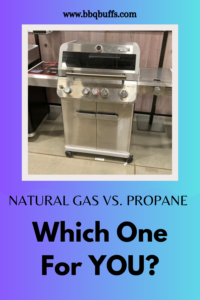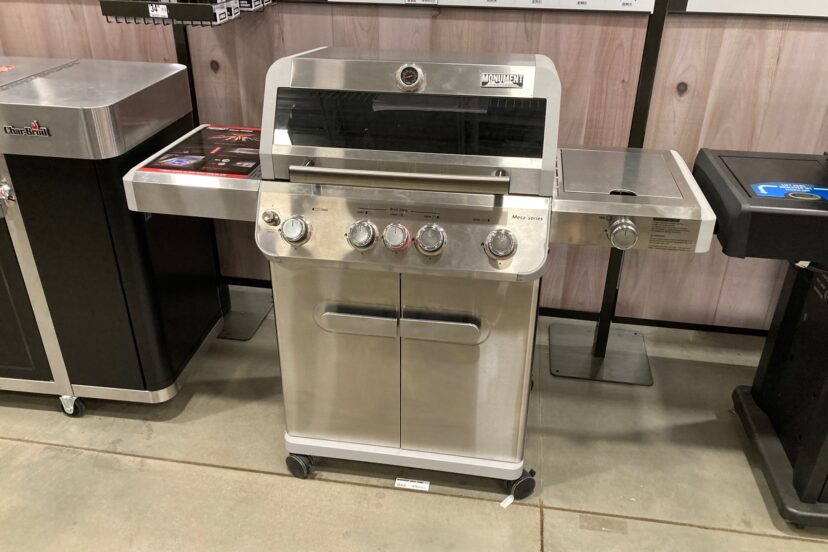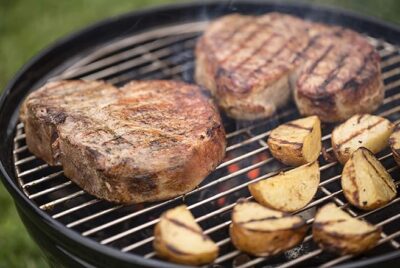Natural Gas vs. Propane Grill
When it comes to outdoor cooking, the grill is the star of the show. But with so many options available, choosing the right type can be overwhelming. Now, ME? I’m a charcoal guy, but two of the most popular options are natural gas grills and propane grills. Each has its own set of advantages and disadvantages, and the best choice for you will depend on your specific needs and preferences. Let’s dive into the nitty-gritty details of natural gas vs. propane grills to help you make an informed decision.
When it comes to natural gas vs. propane grill, frankly, really what this is about- convenience. Charcoal is not… Propane and natural gas ARE. So, let’s dive in!
Overview of Natural Gas Grills
What is a Natural Gas Grill?
A natural gas grill is powered by natural gas, which is piped directly to your home. These grills are connected to your home’s gas line, eliminating the need for refilling fuel tanks. This type of grill is typically stationary due to the need for a gas line connection.
Pros of Natural Gas Grills
One of the biggest advantages of natural gas grills is their convenience. Since they’re hooked up to your home’s gas line, you never have to worry about running out of fuel in the middle of a cookout. Natural gas is also cheaper than propane in many areas, making it a more economical choice over time. Additionally, natural gas is a cleaner-burning fuel, which is better for the environment.
Cons of Natural Gas Grills
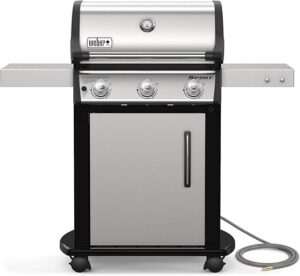
On the downside, natural gas grills require a more complex installation process and may involve higher upfront costs. You’ll need a professional to connect the grill to your gas line, which can be pricey. Furthermore, because they need to be connected to a gas line, these grills are less portable and not suitable for people who like to move their grill around the yard or take it on trips.
Here is a highly rated Natural Gas Grill:
Weber Spirit S-315
Overview of Propane Grills
What is a Propane Grill?
Propane grills use propane gas stored in portable tanks. These tanks can be easily replaced or refilled at many locations, such as gas stations or home improvement stores. Propane grills are known for their versatility and ease of use.
Pros of Propane Grills
One of the key benefits of propane grills is their portability. You can easily move them around your backyard, take them to a friend’s house, or even bring them on a camping trip. Propane grills also heat up quickly and tend to have a higher BTU (British Thermal Unit) output, which means they can get hotter faster. This makes them ideal for searing steaks and other high-heat cooking techniques.
Cons of Propane Grills
The main drawback of propane grills is the need to monitor and replace the fuel tanks. There’s always a risk of running out of propane in the middle of cooking. Additionally, propane is typically more expensive than natural gas, which can add up over time if you grill frequently.
Key Comparisons Between Natural Gas and Propane Grills
- Cost and Efficiency– When comparing costs, natural gas generally comes out ahead. The price per unit of energy is lower for natural gas compared to propane. However, the initial setup cost for a natural gas grill can be higher due to the installation of a gas line. Propane grills have a lower upfront cost but can become more expensive over time due to the higher cost of propane.
- Convenience and Mobility– If you value convenience, a natural gas grill might be the way to go. No more trips to refill propane tanks, just a steady supply of gas from your home. On the other hand, if you love the idea of a portable grill that you can take anywhere, propane is your best bet. Its portability makes it perfect for tailgating, camping, or just moving around your backyard.
- Flavor and Performance– Both types of grills can deliver excellent flavor, but some enthusiasts argue that propane grills, with their higher heat output, provide a better sear on meats. However, many users report no noticeable difference in flavor between the two. The performance largely depends on the specific model and how well you maintain your grill.
- Environmental Impact– Natural gas is considered a cleaner fuel compared to propane. It produces fewer greenhouse gases and pollutants. If environmental impact is a key concern for you, natural gas might be the greener option. However, propane also burns cleanly compared to charcoal, making both options relatively eco-friendly.
Tips for Choosing the Right Grill- Natural Gas vs. Propane
- Assess Your Cooking Needs– Think about how you plan to use your grill. Do you host large gatherings, or do you grill for just a few people? Do you need a grill that’s ready to move at a moment’s notice, or will it stay in one spot? Your cooking habits will heavily influence your choice.
- Consider Your Budget– Factor in both the initial cost and the long-term costs of fuel. While natural gas grills may be more expensive to install, they can save you money in the long run. Conversely, propane grills are more affordable upfront but could cost more over time.
- Think About Your Space– Evaluate the space where you plan to use your grill. Natural gas grills need to be near a gas line, so they’re best for permanent outdoor kitchens. Propane grills, being more portable, offer more flexibility in placement and can be used in various settings.
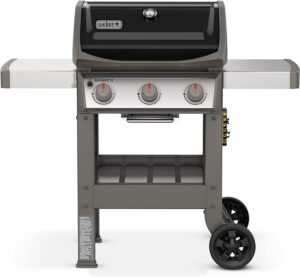
Here are three good choices for propane grills-
Weber Spirit II E-310 3-Burner Liquid Propane Grill
Captiva Designs 4-Burner Propane Gas BBQ Grill
Grill Boss 3-Burner Propane Gas Grill
Deciding between a natural gas and propane grill ultimately comes down to your personal needs and preferences. If you value convenience and lower long-term costs, a natural gas grill might be the way to go. If portability and high heat output are more important to you, a propane grill could be your best bet. Both types have their unique advantages, and either can enhance your outdoor cooking experience.
FAQs
What is the main difference between natural gas and propane grills?
The primary difference lies in their fuel sources: natural gas grills are connected to your home’s gas line, while propane grills use portable propane tanks.
Which grill is better for the environment?
Natural gas grills are generally better for the environment as they produce fewer greenhouse gases compared to propane.
Can I convert a propane grill to natural gas?
Yes, many propane grills can be converted to natural gas with a conversion kit, but it’s important to check the manufacturer’s guidelines and have a professional handle the installation.
Are natural gas grills more expensive to install?
Yes, natural gas grills typically require a professional installation to connect to your home’s gas line, which can be costly upfront.
Which grill is easier to maintain?
Both types of grills require regular maintenance and cleaning, but natural gas grills might be slightly easier since you don’t have to deal with replacing propane tanks.
